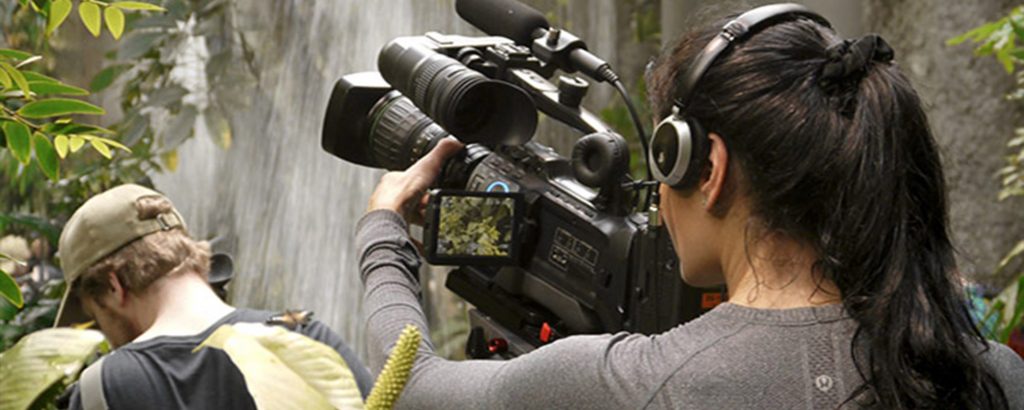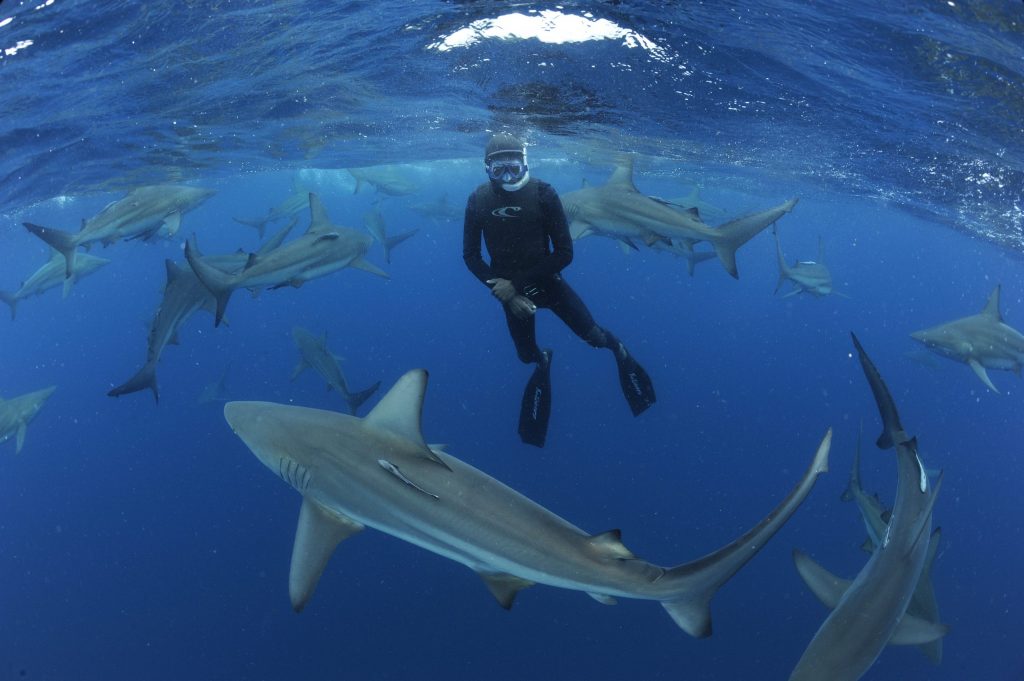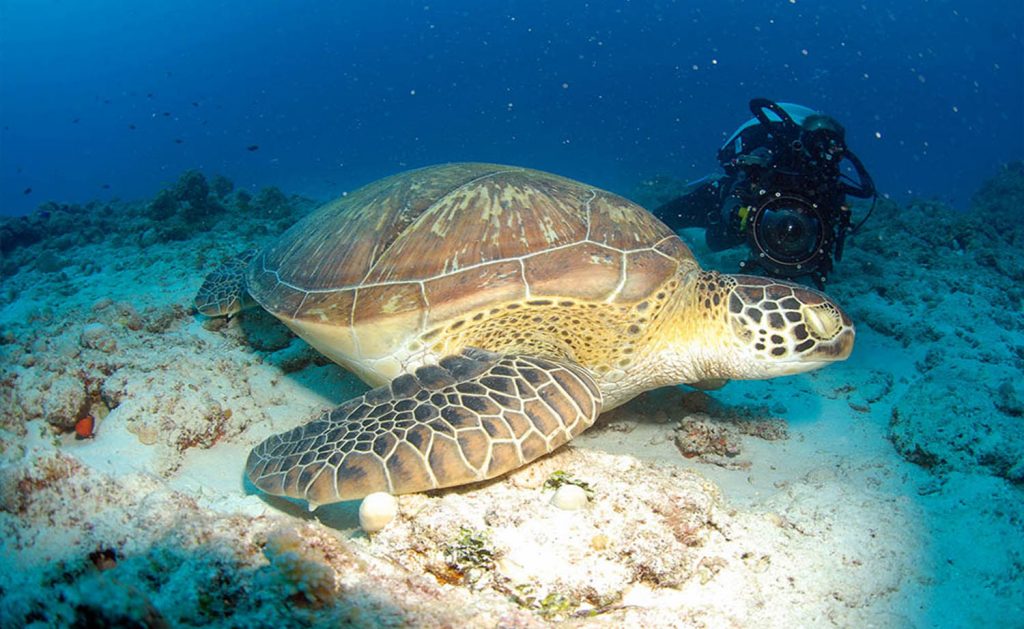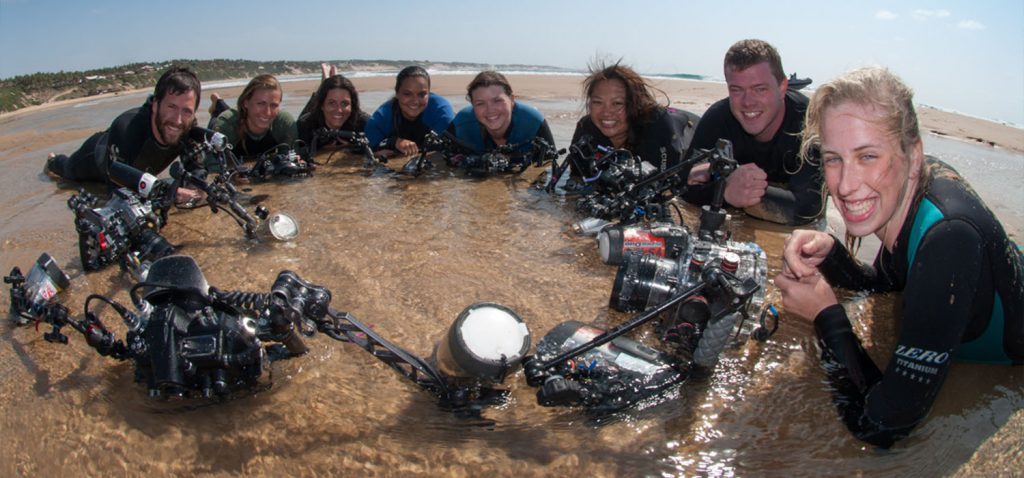Upgrade from an enthusiastic amateur photographer to an aspiring professional. Learn how to make money from Wildlife and Travel photography whilst experiencing incredible photographic platforms in Africa
This popular course aims to provide aspiring photographers with the opportunity to ‘ break into and make it’ in the competitive world of wildlife and travel photography. Over the course of a month, students will accompany Africa Media photographers on expeditions throughout the Garden Route in the Southern Cape of South Africa, at the same time building their own professional photographic portfolio.
The program includes tutorials and practical training on such aspects of Wildlife and Travel photography as: setting up your own business; how to make enough money to start and keep going; how to market yourself and build your income streams in the field you love. This training, coupled with the practical experience of shooting within various wildlife and travel platforms, will enhance your career prospects. Some benefit from receiving credits within their schools or colleges.

What do I get out of the program?
This internship program is aimed at assisting in the development of students who are interested in running their own independent photography businesses that can survive financially and thrive in any economy. During your month in South Africa, you will have the chance to photograph beautiful wildlife, incredible landscapes, and diverse local communities. Through our strategic partnership with a shark cage diving operator, students also have a unique opportunity to take photos of the great white shark, one of the most charismatic marine animals in the world.
What does the course fee include and exclude?
What does the course fee include?
Dorm accommodation, 3 meals per day, expert instruction, all local photography expeditions (including associated transportation and accommodation), use of macro lenses during macro training, travel to/from George Airport or the bus depot, internet.
What does the course fee exclude?
Single accommodation ($500 USD/month additional), laundry service, tourism excursions, dSLR cameras and lens rentals, extra food and beverages, alcoholic beverages, international and domestic flights, game ranger tips.
If you choose to arrive early (before the 1st) or depart late (after the 28th) then we will ask $30 USD/day to cover additional accommodation. Food is not included on additional days.
Can I cancel once my place is confirmed?
Due to the number of applications received and limited places, we unfortunately do not accept all applying students. Therefore, we do not welcome cancellations or date changes after the final confirmation has been completed. Please make sure that the dates you indicate in your application form suit your own schedule/budget before applying.
We request that a non-refundable $750 USD deposit is paid within 14 days of being accepted into the program as confirmation. The remaining fee must be paid in full 30 days prior to arrival in South Africa.
Am I eligible?
Anyone can come on this course. It is ideally suited to:
- Current or graduated students enrolled in academic institutes and studying towards a journalism, conservation, or photo major
- Aspirant photographers
- Photographers who want to improve
What is the schedule?
This program offers an incredible opportunity to experience many aspects of what South Africa has to offer. We enjoy a good relationship with various organizations along the Garden Route, which allows us to provide students with diverse experiences with African wildlife and our local communities.
As a student, you will receive instruction in both basic and more advanced photography techniques. With a focus on wildlife and travel photography, students will deepen their understanding of how photography can be used to tell a story, to promote conservation efforts, and to have an impact on the community-at-large. Students will learn how to survive and make money in today’s markets, how to prepare for a shoot, and how to work professionally in the field/on location. Additionally, you will learn how to edit using Adobe Lightroom and (to a far lesser extent) Adobe Photoshop.
Daily work will be split between tutorials and practical work in the field. In general, the month will follow a schedule of 5 days on and 2 days off per week. However, please note that the actual schedule may vary based on several factors.
How long is the course?
The course lasts 1 month beginning on the 1st (arrival day) and ending on the 28th (departure day) of each month. If you choose to arrive early (before the 1st) or depart late (after the 28th) then we will ask for additional fees for extra accommodation. Food is not included on additional days
Do I require a work / volunteer VISA?
No. You will not be employed by Africa Media nor paid. On this course you are entitled to enter on a temporary visitor’s permit (e.g. tourism permit). Tourist visas are usually issued for three months/90 days upon entry in South Africa. However, we do recommend that you contact the South African Embassy or Consulate in your country and confirm this fact. If your application period is for a period longer than three months, or if you plan to travel in South Africa prior or after the course for a period extending 90 days, you will have to apply for a volunteer VISA application through your home embassy.
Who owns the media I collect?
All media collected by you will belong to you. However, the following licensing conditions on collected materials is required:
- Africa Media retains total right to use the media for any non-exclusive purpose whatsoever free of charge and without requiring permission or paying compensation to the student (including the sale of footage and photos). This further means that the student may only license any collected footage and photos for non-exclusive rights to a third party.
- For filmmaking students and videography students, Africa Media will be recognized as the ‘executive producer’ on your final film.
What practical training to I receive?
Film techniques, camera operation, understanding wildlife, equipment maintenance, crew management, footage workflow, working with talent (including animals), video editing, voice-over/soundtrack, and pitching your film.
What theoretical training to I receive?
Course introduction, orientation, inspiration and story, what is selling today, film equipment, script writing, wildlife presenting, marketing you/your films, ethics in wildlife filmmaking, funding your films, the art of pitching.
What months does the course run?
We run most months from March to November, However, we need to receive a minimum of three students into a monthly program to be operational. When you connect with me, we will let you know which months we are running.
- 1 – 28 March
- 1 – 28 April
- 1- 28 May
- 1 – 28 June
- 1 – 28 July
- 1 – 28 August
- 1 – 28 September
- 1 – 28 October
- 1 – 28 November
do I need my own filming equipment?
In terms of photographic gear, students usually bring their own cameras, lenses, and tripod. There are additional lenses supplied by Africa Media for tutorial work only. Top-end lenses and camera bodies are available as rentals should a student require additional equipment.
In terms of photo processing, you must bring your own laptop to complete editing and slideshow development. This should have at least 8GB RAM and be pre-loaded with Adobe Lightroom Classic (required) and Adobe Photoshop (recommended).
What equipment will I have access to?
Many students prefer to work with their own cameras and lenses. During specific tutorials certain specialist lenses and filters are provided.
Various cameras and lenses can be hired for the duration of the internship. It is preferable to pre-book these to avoid disappointment.
Where will I be staying?
Your home for the month will be in the beautiful town of Mossel Bay, South Africa. (Africa Media address – 182 Aalwyn Way, Aalwyndal, Mossel Bay, 6520)
For 9 of these days you will be staying on Schotia Safaris Private Game Reserve, living in the wilderness and collecting content for your production.
What information do I need to make my travel arrangements?
If you are travelling by plane, please fly to George Airport, South Africa. We will pick you up and drop you off at George Airport.
If you are travelling by bus, there is a bus stop in Mossel Bay just a few minutes from the guest house. We will pick you up and drop you off.
What are the arrival and departure dates?
Pickups and drop offs will be organized by Africa Media for you on the 1st day of the month (for arrivals) and the 28th of the month (for departures).
The program begins with paperwork and orientation on the 1st of the month. There is no need to arrive prior to the 1st; however, arriving earlier in the day is preferable, as it gives you some time to settle in before the course begins.
You can schedule your departure for any time on the 28th.
Do I need travel / medical insurance?
es. When you are accepted into this program, you agree to our liability and copyright documents, as well an agreement that you are knowingly partaking in potentially dangerous activities. You will not be covered for accidents or illnesses, so please do organize your own medical and health insurances. You may apply for a normal travel insurance policy. Chances that you will be injured by a predator are very slim if you follow the safety guidelines and do not try anything foolish of which we would not approve. However, you will be filming wildlife which can result in accidents. It is important to be covered in case of an emergency or accident. Be sure to have insurance coverage for your entire stay in South Africa.
What do I need to bring?
If you are getting ready to pack, here is a rough packing list of items you should consider bringing.
Clothing
- Work clothes. Bring what you are comfortable in, but ensure that you have warm, strong work clothing of neutral colors, solid work shoes such as hiking boots or trainers, a good sun hat with a wide brim and a warm hat/beanie. Gloves can be helpful for early mornings. Bring a tracksuit or something similar to lounge around in during the evenings, which can get cold. Also, face buffs help keep off the cold in the evenings.
- Social clothes. Mossel Bay is a small town, so social clothing should reflect a casual, non-formal style.
- A swimming costume.
Video and electronic gear
- Minimum of 1TB storage hard drive.
- Laptop.
You are more than welcome to bring any personal videography or photographic equipment; however, this is totally optional.
Editing programs
- Adobe Premiere Pro
Miscellaneous
- Toiletries & strong sunscreen (There are also plenty of shops to purchase from.)
- Prescription medication
- Passport & photocopy of passport
- Bank cards (Inform your bank of your travels.)
- Spare cash (rands)
- Phone & cables
- Sunglasses
Our address – 182 Aalwyn Way, Aalwyndal, Mossel Bay, South Africa
do I need extra money?
We offer optional weekend trips/activities for all students and interns. These activities cover a wide range of interests, and costs vary. Cash is required for these bookings. You may bring rands with you, but there are also ATMs nearby. Please note you do not have to go on ANY of these extra trips. This is simply for your information should you wish to participate.
Do I need malaria medication?
No, we are far from malaria areas, and there are no strange African diseases which you could pick up (that is if you respect the same safety rules as anywhere else in the world).

DAY 1-5 (Estimated)
Orientation – arrival and welcome. Day spent ensuring paperwork is completed, living arrangements established and a familiarity tour of the local town/area. Technical tricks are scattered throughout. Each day is full of the practical application of techniques.
Introduction to DSLR – Day spent learning about equipment, how to maintain it, when and where equipment is used and some of the basic settings of the equipment.
Introduction to DSLR -Day spent learning about settings of DSLR and how to use settings for various types of speciality photography
**Cape St. Blaize expedition – Photographic expedition along the Saint Blaize trail utilising photographic techniques for landscape and scenic type photography.
Lightroom and stock photography – Learn adobe lightroom for cataloguing and sourcing your photographs. Delve into building your portfolio and commercial operations on international stock libraries.
DAY 6-10 (Estimated)
Expedition to Camdaboo– Drive to Mount Camedaboo game reserve. Afternoon photographic shoot at Vally of Desolation.
Safari Mount Camdaboo – Full day photographic safari of Mount Camdeboo on private game vehicle. Evening night shoot and star trails.
Safari Mount Camdaboo – Full day photographic safari of Mount Camdeboo on private game vehicle. Afternoon walking expedition throughout game reserve.
Safari Mount Camdaboo – full day photographic safari of Mount Camdeboo on private game vehicle including expedition to ancient cave paintings and the alpine regions of reserve.
Safari Mount Camdaboo – morning photographic safari of Mount Camdeboo on private game vehicle. Midday departure for Mossel Bay
DAY 11-15 (Estimated)
Photographic postproduction – full day workshop in photographic editing techniques, metadata, and ensuring students are informed on the latest techniques in processing and displaying photographic images.
Community expedition – Delve into a traditional South African community for a cultural photographic expedition. Learn about the ethics, legalities and requirements of travel photography when interacting with indigenous communities.
**Plettenberg expedition – Depart for Plettenberg Bay and check into apartment. Afternoon photographic expedition of Roopberg nature reserve and the Cape fur Seal Colony.
**Monkeyland / Birds of Eden – Expedition to two large animal sanctuaries, Monkey land and Birds of Eden. Photographic the free-roaming inhabitants in their natural environments
Return day – Return to Mossel Bay, and then spend remainder of the day editing and conducting postproduction on weeks photographs under guidance of program instructor.
**White Shark Cage Diving – Morning workshop on photography from a vessel. Midday white shark cage diving expedition to Seal Island.
Travel photography expedition – opportunistic expedition to a local tourism attraction to work with and photograph the experience for the attraction. Afternoon workshop on social media and utilising these platforms for career and network development.
**Water photography expedition – Trip to a beach, river or pool for a photographic expedition using slow shutter speeds and other advanced techniques used for scenic photography involving water.
Career development & Portfolio – Morning spent on career development for aspiring wildlife and travel photographers, including the development of professional network, freelancer work and career and monetary opportunities for photographers. The afternoon will be spent finalising your photographic portfolio and exporting prior to an evening showing.
Schotia Private Game Reserve
Schotia Safaris Private Game Reserve is one of South Africa’s most renowned private game reserves and is located adjacent to Addo National Park. Learn more about this jewel of the Eastern cape at the reserve’s website.
View website – click here
Mount Camdeboo Private Game Reserve
Mount Camdeboo (“Place of green hills or pools” in ancient Khoisan) Private Game Reserve lies a short way to the east of Graaff-Reinet in the heart of the Great Karoo. Learn more about this beautiful reserve on the website.
View website – click here
Monkeyland
Monkeyland is the world’s first free-roaming multi-specie primate sanctuary. Its mission is to educate and foster a greater understanding of our primate cousins and the threats and challenges they are facing.
View website – click here
Birds of Eden
Birds of Eden’s unique two-hectare dome (the world’s largest) spans over a gorge of indigenous forest. Currently, it is home to over 3,500 birds from over 220 species, with the main focus being African birds. Visits to Birds of Eden are usually self-guided, however, guided walks are offered on request.
View website – click here
Jukani Wildlife Sanctuary
At Jukani our mission is to maintain and manage a sustainable wildlife sanctuary, with the focus on creating widespread awareness about the plight of large predators in captivity, in South Africa and all over the world.
View website – click here
White Shark Africa
White Shark Africa staff have a proud history in White Shark research, conservation, filming and education so you can be sure that we have a passion and love for these animals and their environment.
View website – click here
Bottlierskop Private Game Reserve
With the magnificent Outeniqua Mountains as a backdrop and sweeping views out over the glistening Indian Ocean below, lies Botlierskop Private Game Reserve. We explore this incredible wildlife reserve on horseback
View website – click here
Program fees
USD 3550 – 4 weeks sharing
USD 4050 – 4 Weeks single
Get Started
I founded this program to inspire and mentor a new generation of wildlife and travel photojournalists. Connect with me to secure your place or learn more about the program.





